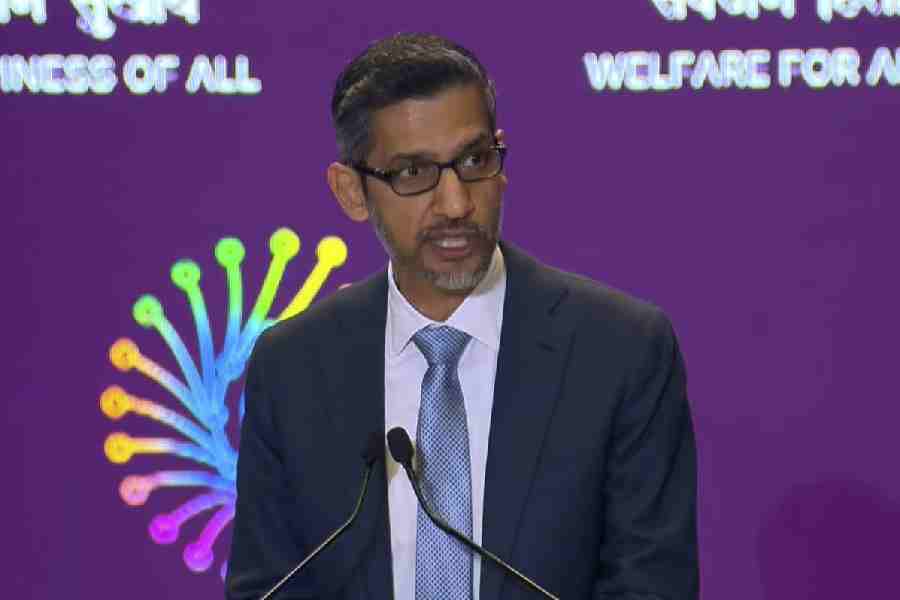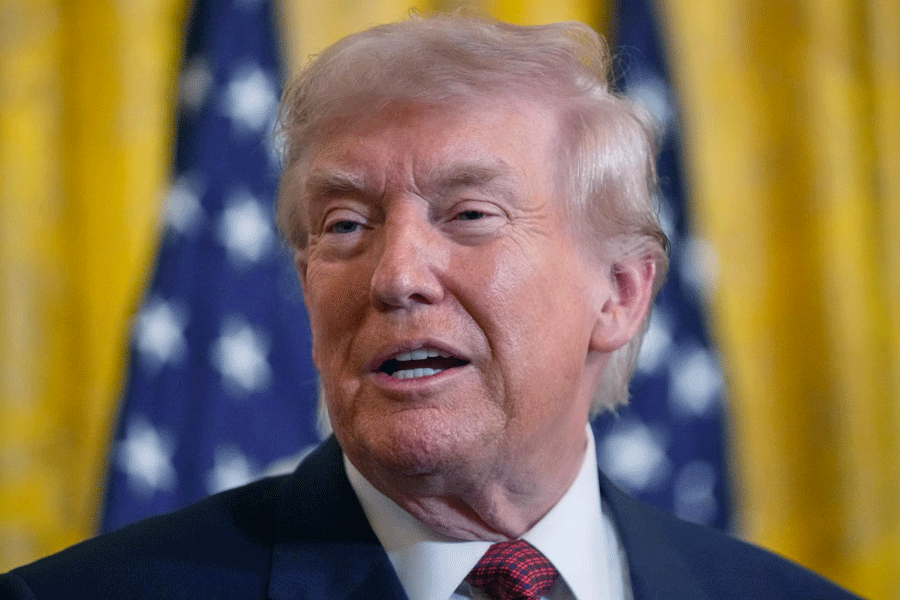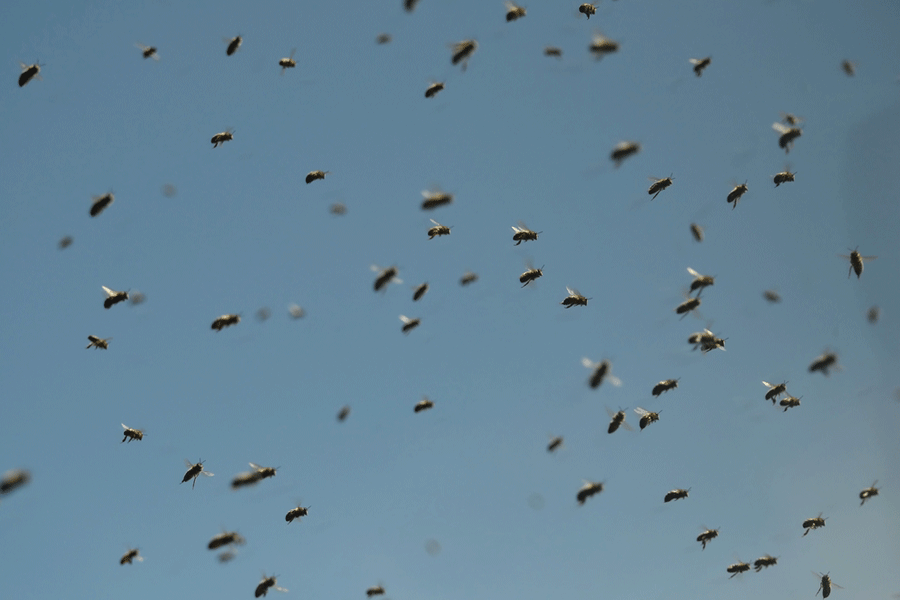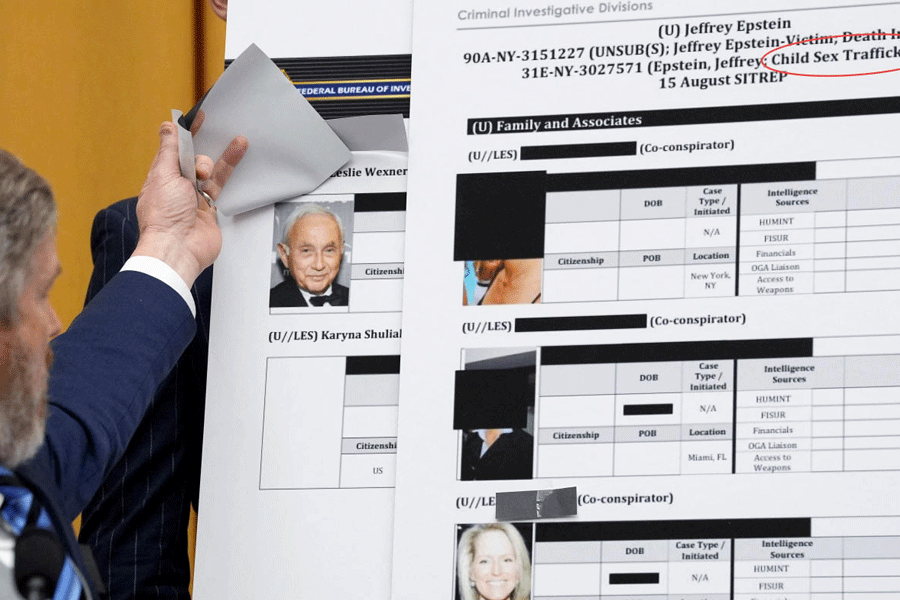A woman’s world
Sir — The ‘alpha male’ has been toppled from his imaginary throne and the crown now rests on the head of the friendly female. Twenty years of Rwandan gorilla research suggest that real power lies in building alliances rather than in baring teeth. Dominance is less about muscle and more about remembering who shared fruit with you in childhood. Perhaps culture could stop peddling chest-thumping bravado and learn from bonobos whose politics involves female friendships. If the social ladder truly belongs to those with charm and empathy, the human race may wish to reconsider its role models.
Noopur Baruah,
Tezpur, Assam
Sense the gravity
Sir — The leader of the Opposition in the Lok Sabha, Rahul Gandhi, has alleged that over one lakh fake votes were created in the Mahadevapura assembly segment in Karnataka to aid the Bharatiya Janata Party in the 2024 general election. His presentation cites duplicate entries, bulk voters at one address, and misuse of Form 6. The Election Commission of India has asked the Congress leader to swear an oath in this regard. However, after an accusation has been made, it is the EC’s responsibility to refute it. Instead, voter lists have disappeared from the websites of several State Election Commissions. Moreover, the EC’s choice to publish voter data as image PDFs rather than searchable formats limits independent checks. Voter-roll audits work best with door-to-door verification. Transparency is not a courtesy in elections. It is a necessity for public trust in the democratic process.
Bidyut Kumar Chatterjee,
Faridabad
Sir — Rahul Gandhi’s claims about fake votes in Mahadevapura may be unproven but his party’s investigation has highlighted weaknesses in the electoral roll system. Duplicate entries, improbable addresses, and poor verification processes deserve attention regardless of political outcome. Investigating these issues is not about favouring one side. It is about maintaining a voting system that the public trusts. Ignoring credible concerns risks greater damage to democracy than confronting them and fixing the flaws.
Sudhir G. Kangutkar,
Thane
Sir — Publishing voter lists as bulky image files instead of searchable text is an unnecessary obstacle to scrutiny. The format makes it harder for political parties and civil society to verify entries. Open data enable errors to be spotted quickly and fixed. The current approach fosters suspicion even when processes are sound. Technology should serve transparency, not impede it. Electoral integrity is strengthened when the public can see, check, and challenge the data that decide who gets a ballot.
Anupam Neogi,
Calcutta
Sir — The EC’s reluctance to keep polling booth CCTV footage beyond 45 days is puzzling. Video evidence is a simple way to address disputes about electoral processes. Erasing it undermines confidence in the process. In an era where trust in institutions is strained, holding on to clear visual records is a straightforward safeguard. Electoral authorities should not fear scrutiny if they have nothing to hide.
Murtaza Ahmad,
Calcutta
Sir — Even if one were to put aside Rahul Gandhi’s allegations against the Special Intensive Revision in Bihar, there are other valid concerns that persist. The SIR is supposed to be aimed at cleaning voter rolls. Its rushed execution risks removing legitimate voters. Data indicate higher deletions among women despite most migrants being male. This suggests enumeration flaws that disproportionately harm marginalised groups, particularly those with low literacy. Correcting rolls should not lead to disenfranchisement. A democratic register is only as credible as its accuracy, and accuracy demands both precision and fairness in implementation.
Zakir Hussain,
Kazipet, Telangana










